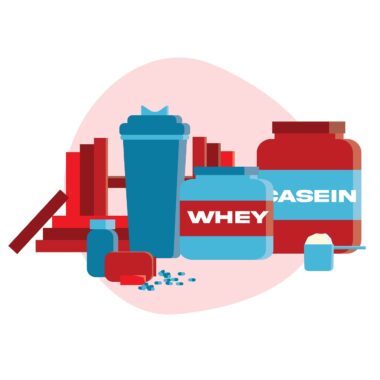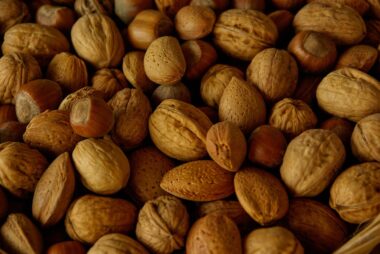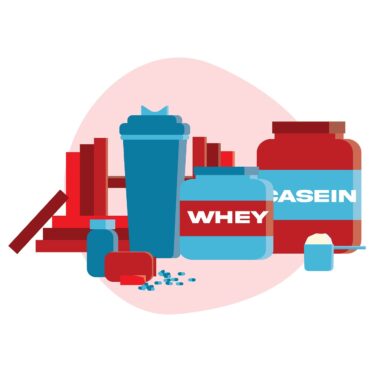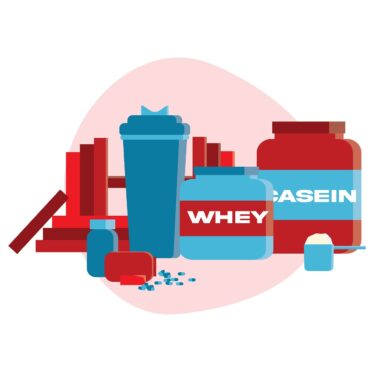How Age Influences Protein Needs After Exercise
Post-workout nutrition plays a significant role in recovery, and protein intake is a critical component, especially as we age. The human body’s protein synthesis capacity decreases with age, thereby increasing the requirement for protein after physical activities. Younger individuals may process protein efficiently, but older adults experience a blunted response. This means older adults might need higher protein amounts post-exercise to trigger muscle protein synthesis. Science suggests that exciting muscles after workouts typically requires protein doses of 20-30 grams in younger folks, whereas older individuals could benefit from 30-40 grams. Factors like individual weight, the intensity of exercise, and overall diet shape these requirements often. Recommendations vary, and consulting with a nutritionist can provide tailored advice. More protein can help combat age-related muscle loss, increase strength, and enhance recovery time significantly. Furthermore, the type of protein consumed can also influence outcomes, with options like whey protein showing better results in enhancing recovery when compared to plant-based sources. It’s apparent that paying attention to protein intake after workouts is essential for individuals across various ages.
Protein should be part of a comprehensive post-exercise nutrition strategy. Carbohydrates matter too, helping to replenish glycogen stores burned during workouts. By combining carbohydrates with protein, you can foster a better recovery environment. For example, pairing a protein shake with a banana can optimize recovery potential significantly. The timing of protein intake is crucial as well; consuming it within 30 minutes after finishing your training can lead to maximized benefits. Timing allows the muscles to recover effectively, promoting protein synthesis rapidly after the workout period. While older adults have specific needs, younger athletes also benefit from proper protein timing. Additionally, hydration plays a role in effective protein metabolism. Without sufficient hydration, your body may not process protein as efficiently. Plain water, or drinks containing electrolytes, are great options post-exercise. Remember, everyone’s nutritional needs are unique, and adjustments may be necessary based on activity levels. Looking beyond protein, a balanced intake of vitamins and minerals is equally critical for muscle recovery and performance. Knowing how to balance these nutrients can empower athletes and fitness enthusiasts at any stage of their training journey.
Understanding Protein Sources
Not all protein sources are equal, especially when considering their amino acid profile. For older adults, it’s essential to focus on high-quality protein sources. Complete proteins, which contain all essential amino acids, should be prioritized over incomplete ones. Animal products like meat, fish, and dairy are excellent complete protein sources. On the other hand, most plant-based proteins lack one or more essential amino acids. However, combining different plant proteins can provide a complete amino acid profile. For instance, beans and rice together offer a full spectrum of essential amino acids, acting as an effective plant-based recovery meal. Moreover, whey protein is recognized for its fast absorption, making it a popular choice among athletes and older populations alike. A faster absorption rate means quicker availability of amino acids to the muscles, facilitating effective recovery. In contrast, casein protein offers slow digestion, providing a steady amino acid release, which may suit evening recovery needs. Hence, individuals must choose the protein source that aligns with their recovery goals and schedules. Tailoring protein selection based on lifestyle can enhance post-workout recovery significantly.
Another aspect of post-workout nutrition that influences protein needs is exercise intensity. Engaging in higher-intensity workouts increases the requirement for protein intake due to greater muscle breakdown. Consequently, both the duration and intensity of training sessions greatly impact the amount of protein necessary for adequate recovery. As one gets older, maximum achievable effort in workouts often changes, yet these individuals may still engage in high force activities. Nevertheless, adjustments to protein intake should still conform to age and intensity variables. An active older adult who participates in resistance training may need more protein than a sedentary peer. Listening to one’s body is crucial. Signs of inadequate recovery can include muscle soreness, increased fatigue, and diminished performance during subsequent workouts. In this light, maintaining a protein-rich snack after high-intensity workouts can mitigate some of these issues. Examples include a protein bar, a shake, or even yogurt mixed with fruit. Adding healthy fats or carbohydrates can enhance the protein shake even more. All these combinations stimulate recovery processes and ensure vital energy replenishment after demanding exercise sessions.
The Role of Supplements
As people age, dietary supplementation can play a pivotal role in meeting protein needs effectively. Dietary protein supplements are an excellent way to increase protein intake without drastically altering daily meal plans. Options like protein powders or ready-to-drink protein shakes provide convenient and effective means to ensure adequate protein consumption. This is especially beneficial for older adults who may struggle to consume enough protein from whole foods. Health practitioners commonly recommend protein supplements to help elderly individuals meet their dietary requirements. When selecting a supplement, it’s vital to consider factors like absorption rates and protein quality. Whey, casein, and soy protein are popular among various demographics, while those should watch for added sugars or fillers in processed items. Furthermore, mixing protein with nutrient-dense foods can enhance its effectiveness, providing not just protein but also micronutrients supporting overall health. As individuals age, nutritional support becomes critical. The incorporation of supplements should not replace balanced meals but rather complement a well-rounded diet to fulfill protein needs. Regular intake of these supplements aids in muscle recovery following strenuous exercises, ensuring a more robust fitness regimen.
In conclusion, understanding protein needs after workout sessions is invaluable, particularly as we age. Older adults have unique concerns that necessitate a higher consideration of protein intake post-exercise compared to younger individuals. Balancing the amount, timing, and sources of protein can lead to optimal recovery, improved muscle strength, and overall better health outcomes. Moreover, the awareness of how factors like workout intensity or supplementation can impact these needs is critical for staying fit at any age. Nutritional needs evolve throughout life, making it essential to adjust dietary habits accordingly. By understanding factors that influence these needs—such as age, exercise intensity, and individual health—everyone can create an effective post-workout nutrition strategy. Listening to your body, consulting with healthcare professionals, and being mindful of recovery practices helps in maintaining fitness goals. Remember, age may change physiological responses, but proactive nutrition can empower individuals, ensuring they remain active, strong, and healthy throughout their lives. Thus, focusing on protein intake forms a solid foundation in enhancing post-workout recovery in every stage of life.
For additional insights and detailed references about protein intake after workouts, consider visiting NCBI and other reliable health information sources. Understanding the science behind nutrition at different age stages guarantees that you can make informed choices. Protein can significantly influence how the body recovers and performs, especially as age advances. Keeping quality sources within reach can help streamline nutritional choices, succeeding particularly when motivation dips. Remember, achieving physical goals at any age isn’t solely about protein; it’s an overall nutrition equation. Balance is key, and creating a personalized plan can make all the difference. Engaging in good nutritional practices serves to meet protein needs and other dietary requirements advantageous for general health. Nutrition is every bit as vital as the workouts themselves, and understanding this will empower better health and performance results. Let’s embrace informed choices and healthy habits for an active, fulfilling lifestyle. Conclusively, prioritizing the right protein intake will shape your recovery and fitness journey more vibrantly.
For those tracking dietary habits, it might be helpful to maintain a weekly log of protein intake. Logging enables you to visualize if the daily requirements are met consistently, prompting adjustments where necessary. Apps are available specifically for nutrition tracking, allowing easy input and automatic calculations of macronutrient intake. By diligently managing protein sources and amounts, you can better gauge individual responses post-exercise. Experiences can vary greatly among older adults—what works for one may not suit another. Consulting a dietitian can provide necessary insights tailored to personal needs. Additionally, keeping communication with trainers can aid adjustments concerning exercise complexity and volume. Age should not deter anyone from pursuing fitness goals; it merely requires a discerning approach to nutrition. Consumption levels must align with lifestyle choices to support successful fitness routines. Nutrition doesn’t stand alone; it harmonizes with physical activity. Emphasizing protein focuses not just on muscle recovery but health longevity, directly enhancing quality of life. Final thoughts advocate intuitive eating approaches and expert advice to navigate protein needs effectively at all life stages.








